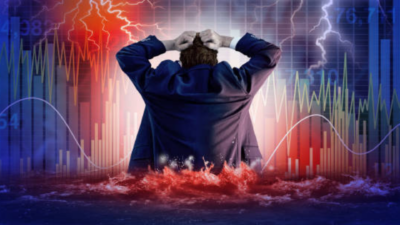As systemic risk grows, what you don’t know can hurt you
If you ask investors right now what the biggest threat to markets is, you’ll get a wide range of responses. It might be private credit, algorithmic trading, or some liability-driven investment blowup shooting back from the future to wreak havoc on the present like Arnold’s Terminator. Models of the world upon which new investments are predicated are less and less representative of it even as more and more data becomes available.
In the Thinking Ahead Institute’s (TAI) latest global asset owner peer study report, 36 per cent of respondents cited the “plumbing of the financial system” as one place from which systemic risk could emanate. That’s a lowly fourth place, lapped by inequality and social challenges (48 per cent), escalating climate change (72 per cent) and geopolitical confrontation (84 per cent). To deploy monster movie parlance, whatever lurks in the sewers is somewhat less of a concern than the thing levelling skyscrapers. But it is a concern – a kind of generalised anxiety about the unknown, the lingering feeling that something could suddenly fail to perform as expected, and with catastrophic consequences.
That concern is something of a hangover from the Global Financial Crisis, TAI co-founder Roger Urwin tells ISN; the “plumbing” is effectively the connections upon which the financial system is built, and the fear is of an event that cascades through them.
“The plumbing of the financial system is so crucial, and it isn’t clear that we’ve learnt enough lessons in that respect and so it remains a systemic risk,” Urwin says. “We’ve seen the rise and rise of systemic risk; it wasn’t a factor through the 2010s, as it were; we’ve been keeping the lid on them. But in the 2020s the likely expectation is that these system risks will manifest.”
“The problem is the interconnectedness of the system, which has increased over time, and the complexity of the system, which creates this (dynamic) where you don’t always know what’s going to happen because you have first, second, third and fourth order effects.”
Is it possible, then, to know anything about anything? Technology and a highly financialised society have linked things together more tightly than ever before, and the knowns and unknowns have increased accordingly. The quality of work being done by central banks to try and understand these risks and prepare for them is also increasing, and the way that institutional investors think about risk is being redefined, Urwin says, with respect to two words: robustness and resilience.
“In some respects we should be concerned about preparing for things that we don’t know about but can just about conceive, and that’s robustness near enough,” Urwin says. “That’s to some extent the portfolio positioning; ‘all weather’ is a phrase that comes from Bridgewater, but it’s a good phrase.
“Resilience is the adaptiveness that you show as risk events manifest and materialise. You suddenly realise that interconnectedness was more toxic than you realised, but you’re in a position to adapt quickly; you use your firepower. The GFC was a real success for the resilience of the political system to get its act together collectively; we didn’t deal with it country by country, we coordinated.”
We should be concerned about the gaps in our knowledge and try and fill them. But nobody has a map of the whole system, and it’s not clear how detailed it would be if they did. One way of filling the knowledge gap is by throwing more and more computing power at it, which the rapid advance in artificial intelligence has made more achievable, but at the foundation of modern investing are very elegant models that are very narrowly based, Urwin says.
Investment fundamentals are now heading into a new space of systems thinking; financial markets are complex adaptive systems, institutions are complex adaptive systems, and they’re adapting as they go. Complexity follows the exponential function; it grows every year, and “grows more every year.”
“Gradually, as we work our way into the reality of the system, we discovered that a) it was always much more complex than we gave it credit for – almost getting towards chaos theory – and b) understood that the financial system can’t be seen as separate from the world; this is where geopolitical confrontation and climate change come in. They weren’t in the investment models of 20 years ago at all. All of that is therefore suggesting that those who aren’t working without reference to these wider factors are missing an important pricing input.”











